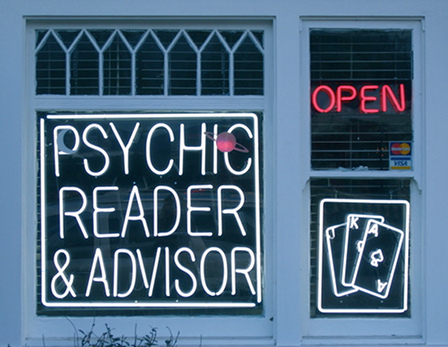For twenty years, Neil Strauss has somehow managed to slip the
subversive into the mainstream, covering alternative music and culture for two
decades as a journalist and writing six New York Times best-selling books,
including Emergency, a first-hand
account of learning to live off the grid in the face of the current world
crisis. His latest book, out today (March 15th), Everyone Loves You When You're Dead,
collects the best moments of his two-decade career, including moments of truth
with Timothy Leary, Johnny Cash, Neil Young, Nusrat Fateh Ali Khan, and remote
viewers, as in the excerpt below.
Russell
Targ is, by all appearances, a stereotypical nerd genius, with pants pulled
past his belly button, moplike gray curls, thick black-framed glasses, and a
high, pinched voice. In the 1950s, he made his reputation by helping to develop
the laser. But in 1972, his life took a turn for the surreal when he and
another physicist found themselves with a contract from the CIA. For the next
two decades, he was at the forefront of one of the strangest chapters of the
Cold War: psychic espionage.
This is not a
conspiracy theory, like the rumor that the military covered up a UFO crash in
Roswell, New Mexico. This is actual fact: For twenty-three years, the U.S.
government funded the research and development of teams of psychic spies
trained in a type of ESP known as remote viewing, in which, with pen, paper,
and brain, they attempted to tune into events taking place in locations and
times outside ordinary sensory perception.
These spies claim
to have psychically penetrated Russian nuclear laboratories, visited hostages
in the American embassy in Tehran, and scoured the globe for secret terrorist
camps. Asked after his presidency about unusual events during his term, Jimmy
Carter recalled an incident in which a psychic in the program found the
location of a downed Russian spy plane in Zaire.
Sitting
with Targ in, of all places, a casino in Las Vegas, I began interviewing him
about the program, with a healthy dose of skepticism. But then, suddenly, he
asked . . .
Targ: Have you ever done any
types of psychic things?
Strauss: I'm not sure. I don't think so.
I can try to show you something psychic. You'll need to use
your pen and your notebook.
What do I have to do?
I have an object in my pocket. It's not an ordinary kind of
thing that you would find in your pocket. And what I'm inviting you to do is
try and describe the shapes that come to mind. But don't try and guess my
object.
I don't know. Maybe it's a little loud for this?
If you were going to draw a shape associated with this
object, what would you draw? (I draw an
uneven circle on the paper.) Now
what words do you associate with that object?
Uneven shape? Lustrous in parts?
Good. Take a breath.
I'm probably thinking too hard, right?
I just want you to get back into that mood. If you go back to
that object that you saw, what else comes to view?
Um, parts are gray or black. And maybe it's rough on the outside.
You can write all that down. You are in contact with the
object. Now you just want to draw the object that I'm about to show you.
Should I try to put my mind inside your pocket or just let it come to
me?
Just let it come to you. You can look into your immediate
future, because I'm about to lay this in front of you. (I put the pen to the paper and let my hand relax. I start to sketch a
circle, but at the bottom left, for some reason, I draw a small shape jutting
out of its side.) What did you just draw here?
I felt there was something protruding on one side of it.
Did you look at the thing in your hand? What did it look
like?
Shiny.
You can write that down.
You probably have, like, a wallet or a pencil in your pocket.
Now tell me, without naming the object, what is the
overriding property? Without naming the object, what are the recurring things
you're experiencing?
Well, I feel like there's a circle with something poking out of one
side. And I still feel like it's lustrous in parts but not all of it.
Well, that's all entirely correct. Would you like to see the
object?
There's one more thing I want to write down. I feel like maybe it's a
tool. I don't know. Maybe I'm going too far.
What made you think that? What did you experience?
Because when I thought it had a protrusion on it, I made an inference
that it would be a handle for an object that has some sort of practical use.
You can write that down if you want to. I think that's excellent. Not ideal conditions here. Are you ready
to see it?
He
pulls a round black object out of his pocket, with something jutting out of the
side, and places it next to my sketch. It matches it perfectly. The object is a
magnifying glass in a black, round, rough-surfaced case with a small protruding
handle used to pull the shiny magnifying lens out.
How did you do that?
I have a background of thirty years in physics. So I wouldn't
be doing something that didn't actually work.
So what's the secret?
Targ: The secret is that there isn't really any secret. It's an
ability we all have.
A
friend of mine was videotaping this interview, and we later showed it to a
professional illusionist named Franz Harary to see if there was any magic trick
involved.
Franz Harary: With the experience you just showed me, there is no
way magic could be involved.
Maybe
Harary was protecting trade secrets. Maybe he didn't know this particular
trick. Maybe I just got lucky. Or maybe there's more to the world than meets
the eye.
Teaser image by Living in Monrovia, courtesy of Creative Commons license.











